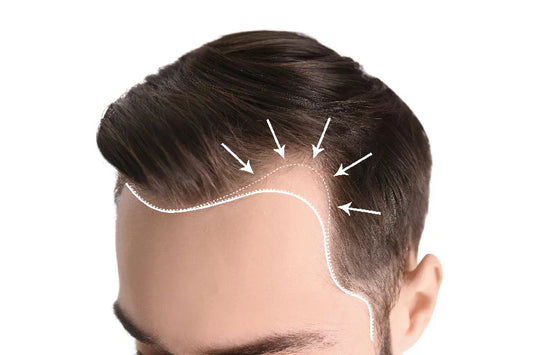
Hairfall Solution in Hindi: बालों को झड़ने से कै...
अगर हम वर्तमान समय के सबसे ज्वलंत प्रश्नों की बात करें तो हेयरफॉल कैसे रोकें (hairfall kaise roke) उनमें से एक है। हमारी खराब खानपान की आदतों और लाइफस्टाइल की...
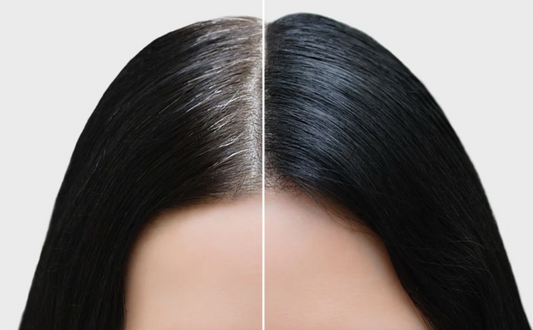
बाल काले करने का नेचुरल तरीका: सुरक्षित और असरद...
बाजार में बालों को तुरंत काला करने के लिए ढेरों प्रोडक्ट्स मौजूद हैं, लेकिन उनका असर अस्थायी है. साथ ही, ज्यादातर केमिकल प्रोडक्ट्स बालों को एक निश्चित समय के लिए...
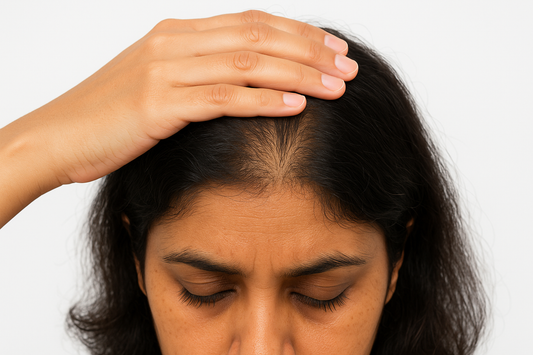
महिलाओं के बाल झड़ने का कारण: रिसर्च और सही समा...
महिलाओं में बाल झड़ने की समस्या पुरुषों के मुकाबले कहीं अधिक विकट है. गर्भावस्था, हार्मोनल बदलाव, घर-गृहस्थी-नौकरी का टेंशन, मेनोपाज, एनीमिया जैसे कई समस्याएं हैं जो महिलाओं में तेजी से...
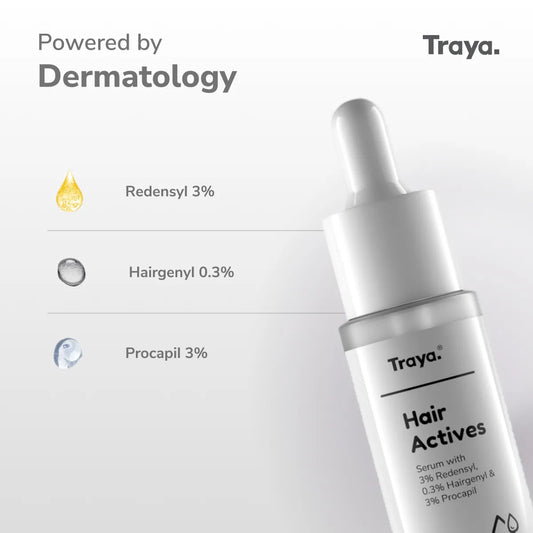
हेयर सीरम के फायदे: बालों को मुलायम, चमकदार और ...
क्या आपके बाल अक्सर रूखे, सूखे और बेजान लगते हैं? पार्टी में जाना हो या किसी इवेंट में, बालों की हालत देखकर मूड ख़राब हो जाता है? बालों में पहले...
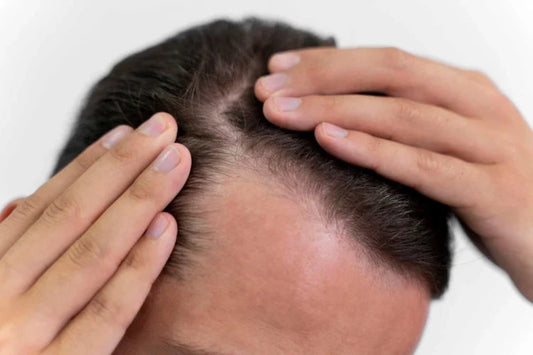
पुरुषों के बाल झड़ने के कारण: पूरी वैज्ञानिक गा...
आपको जानकर हैरानी होगी कि आजकल 25 साल से कम उम्र के 60% लड़कों के बाल झड़ने लगे हैं और यह समस्या खासकर भारत में तेजी से बढ़ रही है....
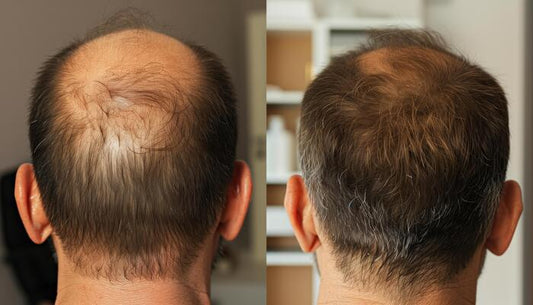
बिना कुछ लगाए बाल बढ़ाने का तरीका: नेचुरल हेयर ...
“क्या बिना कुछ लगाए बाल बढाए जा सकते हैं? मेरे पास तो समय और पैसे का अभाव है, तो फिर बाल कैसे बढ़ाऊं? मैं रिस्क नहीं लेना चाहती, क्या बिना...
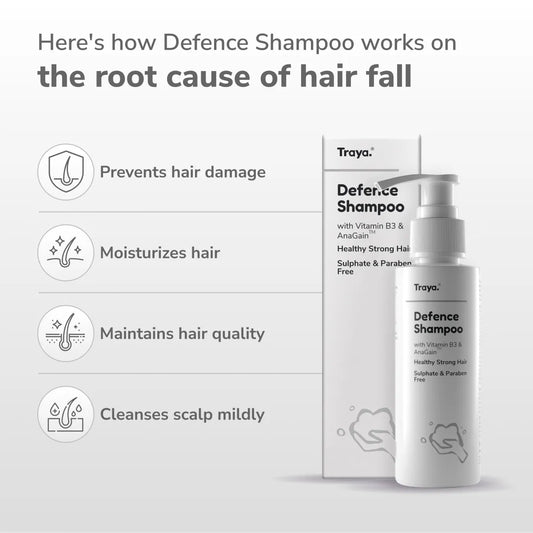
बाल झड़ने से रोकने वाला शैंपू: सही चुनाव और इस्...
बालों से जुडी किसी भी समस्या में हम सबसे पहले शैम्पू और तेल की तरफ ही दौड़ते हैं. बाल झड़ना, रुसी, गंजापन, खुजली, बालों में ग्रोथ न होना जैसी कई...
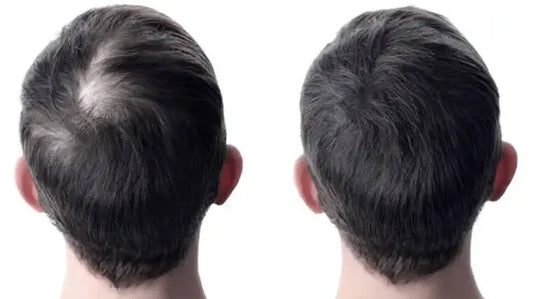
एक रात में बाल बढ़ाने का तरीका: सच, मिथक और सही...
जीवन के हर क्षेत्र में हम कुछ जादुई होता देखना चाहते हैं. बालों का बढ़ना भी ऐसा ही एक विषय है जिससे हम भावनात्मक रूप से जुड़े हैं. बाल हमारी...
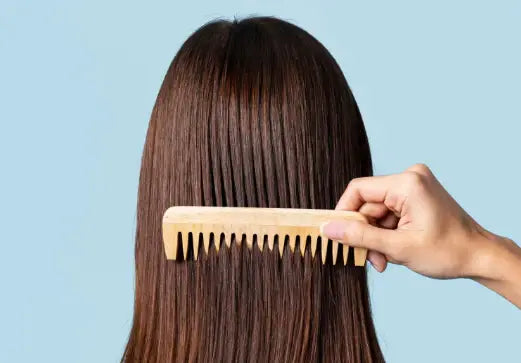
1 महीने में बालों को लंबा कैसे करें?
हम सभी जल्द से जल्द अपने बालों की लंबाई में महत्वपूर्ण सुधार चाहते हैं। बाल हमारी पर्सनेलिटी के अहम हिस्सों में से एक हैं और ऐसे में ये सर्वोत्तम अवस्था...
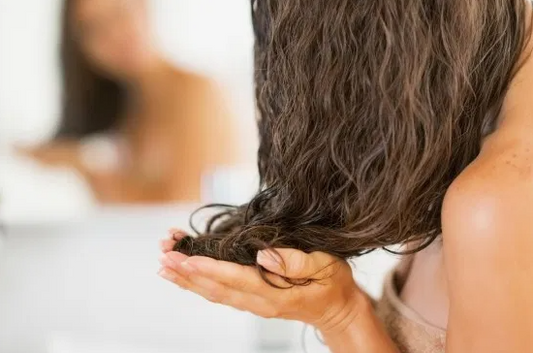
बालों की देखभाल के 12 असरदार और आसान टिप्स
Traya द्वारा पुरूषों पर की गई अध्ययन पर जब हम गौर करते हैं तो पाते हैं अधिकतर बालों से जुडी समस्याओं का जड़ ख़राब हेयर केयर है। अक्सर यह पाया...
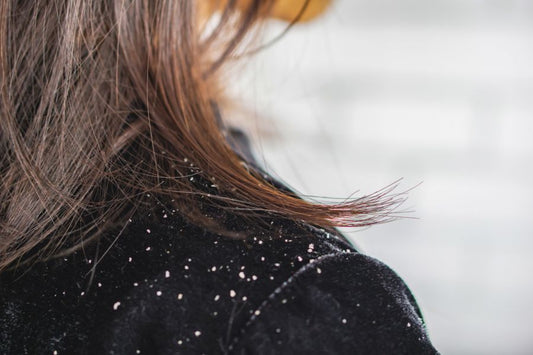
डैंड्रफ के कारण, लक्षण और उपचार | Dandruff in H...
डैंड्रफ होना सिर्फ बालों के झड़ने की समस्या में योगदान ही नहीं देता है, बल्कि यह हमारी निजी जिंदगी पर भी नकारात्मक प्रभाव डालता है और शर्मिंदगी महसूस कराता है।...
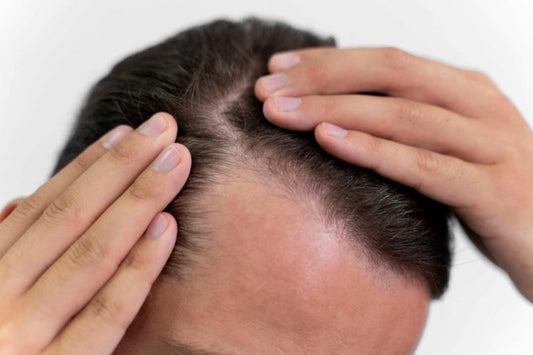
बालों की ग्रोथ कैसे बढ़ाएं? जानें असरदार हेयर ग...
बाल हमारे सिर के ताज माने जाते हैं और इनकी बनावट, आकार और स्वास्थ्य हमारे पूरे पर्सनालिटी को प्रभावित करता है. आपने अक्सर गौर किया होगा कि अगर आपके बाल...

बाल उगाने की सही टेबलेट और दवाइयाँ: बायोटिन, फि...
भारत सहित पुरे विश्वभर में काफी लोग गंजेपन की समस्या से परेशान हैं. स्कैल्प पर नए बालों को उगाने के लिए तरह तरह के तेल, दवाएं, कंडीशनर आदि का सेवन...
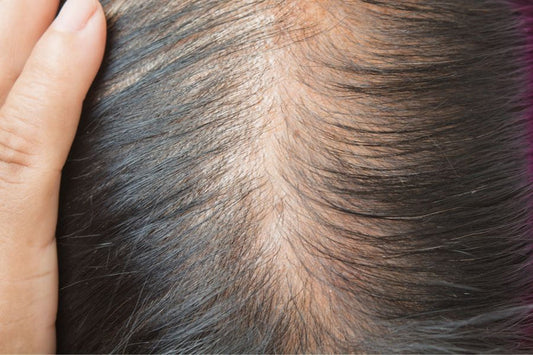
बाल झड़ना कैसे रोकें: प्राकृतिक और सरल घरेलू उपाय
क्या आप अपने सिर की तुलना में अपने कंघे पर अधिक बाल देखकर थक गए हैं? बाल झड़ना एक आम समस्या है जिसका हम में से कई लोग सामना करते...
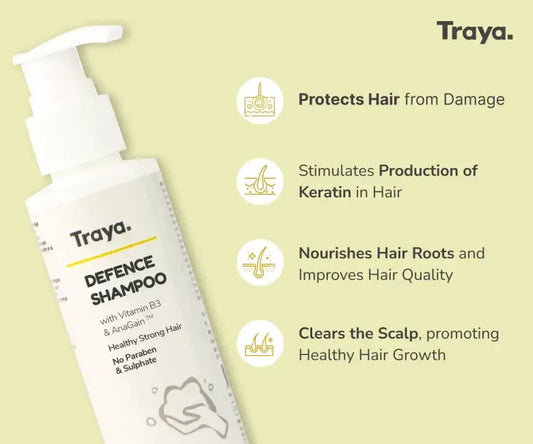
बालों के लिए सबसे अच्छा शैंपू कौन सा है - सही श...
इन्टरनेट पर शैम्पू कीवर्ड लिखते ही सैंकड़ों ब्रांड्स के शैम्पू उत्पाद दिखाई देने लग जाते हैं और सभी दावे भी करते हैं कि वे दूसरों से बेहतर हैं. ऐसे में...

पतले बालों को घना बनाने के कारण और समाधान| Balo...
3 Min Read हमने इस ब्लॉग को इसी खास मकसद के लिए तैयार किया है कि आप बालों को घना, लंबा और मजबूत कैसे बनाएं, इस विषय पर विस्तार से...
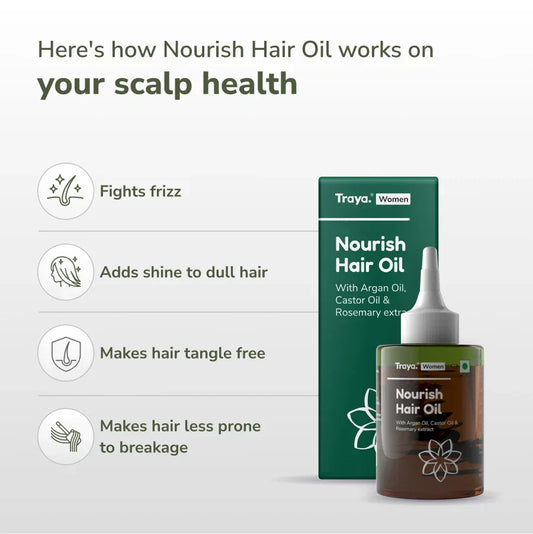
11 असरदार बाल बढ़ाने वाले तेल: जानिये सबसे जल्द...
एक प्रचलित धारणा यह है कि अगर आपको बाल बढ़ाने हैं तो तेल का इस्तेमाल शुरू कर दें. सदियों से बालों की ग्रोथ के लिए कई प्रकार के तेलों का...
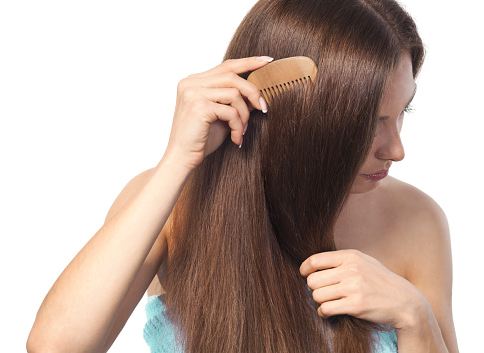
10 दिन में बाल कैसे बढ़ाएं? सच और उपाय एक साथ
बालों के झड़ने और दोबारा जल्दी न उगने से परेशान लोग डर्मेटोलॉजिस्ट से एक ही प्रश्न करते हैं “10 दिन में बाल कैसे बढ़ाएं” या “जल्दी से जल्दी बाल बढ़ाने...
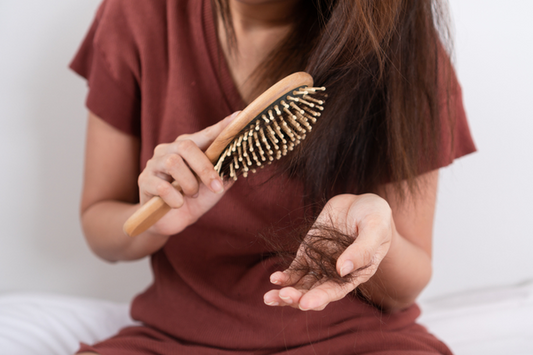
एक ही रात में बाल झड़ने होंगे गारंटी से बंद! जा...
लोग बालों के झड़ने की समस्या से इस कदर परेशान हो चुके हैं कि एक ही रात में बाल झड़ने की समस्या को गारंटी से बंद करना चाहते हैं. सिर्फ...

भारत में सबसे अच्छा शैंपू: बिना केमिकल वाले शैं...
आमतौर पर यह माना जाता है कि शैंपू में मौजूद पोषक तत्व और ऐसे कई गुण बालों के विकास को बढ़ावा देते हैं और उनका झड़ना रोककर लंबे और घने...
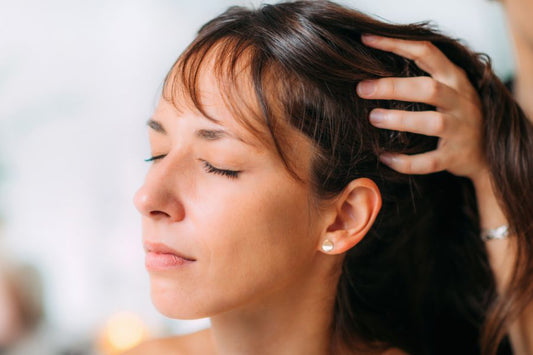
आयुर्वेद, डर्मेटोलॉजी और घरेलु नुस्कों से झड़ते ...
हेयर फॉल यानि बालों का झड़ना एक बड़ी समस्या बनता जा रहा है जिससे काफी लोग परेशान है। खराब खानपान, प्रदूषण, तनाव, बीमारियां, खराब आंत स्वास्थ्य जैसे कई कारणों की...

झड़ते बालों के लिए सबसे अच्छा तेल कौनसा है? जान...
बालों में तेल लगाना एक बढ़िया हेयर केयर रूटीन का हिस्सा है। रोजाना सही तेल से बालों की मालिश करना बालों के समग्र स्वास्थ्य को बढ़ावा देता है जिससे बालों...
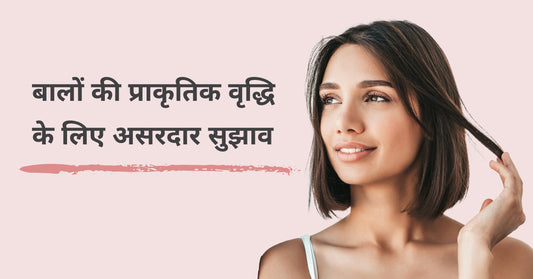
Hair Growth Tips in Hindi
बालों का बढ़ना एक जटिल लेकिन रोचक प्रक्रिया है जिसमें ढेरों फैक्टर्स का योगदान होता है। जैसे कि आपका खानपान बढ़िया होना चाहिए, आप रसायन मुक्त उत्पादों का बालों पर...
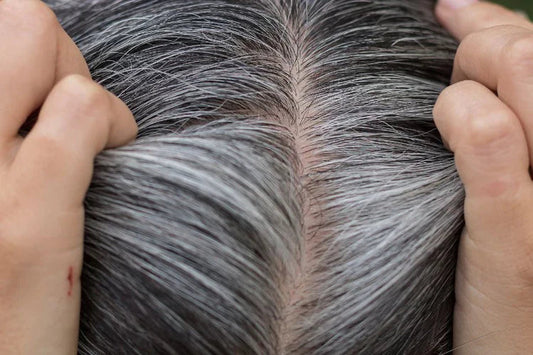
सफेद बालों का रामबाण इलाज | Baal safed hone se ...
3 Min Read आप युवा हैं और कम उम्र में ही आपके बाल सफेद होने लगे हैं तो इसका समाधान मौजूद है। क्या है वो सफेद बालों का रामबाण इलाज?...
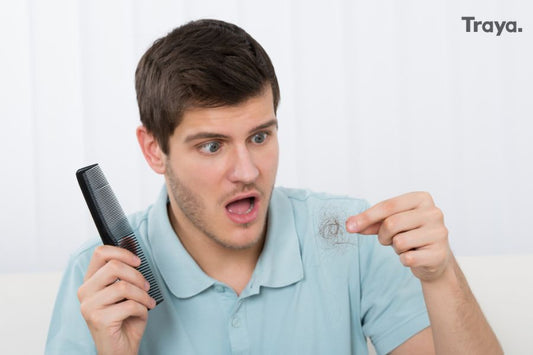
पुरुषों में बाल झड़ने के कारण
Traya ने पुरुषों में बाल झड़ने के कारण विषय पर शोध किया था जिसमें कई चौंकाने वाली बातें सामने आईं । इस शोध में पता चला कि तनाव 25 वर्ष...
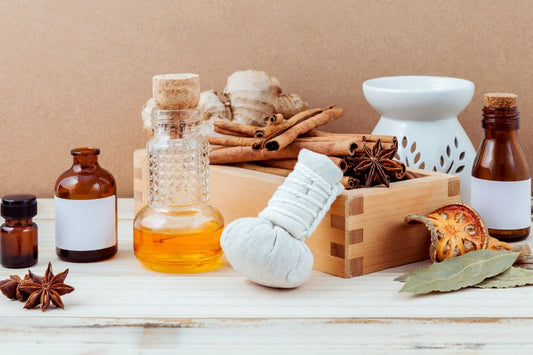
बालों के लिए आयुर्वेदिक तेल (Ayurvedic Oil for ...
Traya में भी हम आयुर्वेद की शक्ति को समझते हैं और इसलिए हमारे सभी उत्पाद आयुर्वेदिक औषधियों के मिश्रण से ही बने हैं। बालों के लिए आयुर्वेदिक तेल का निर्माण...
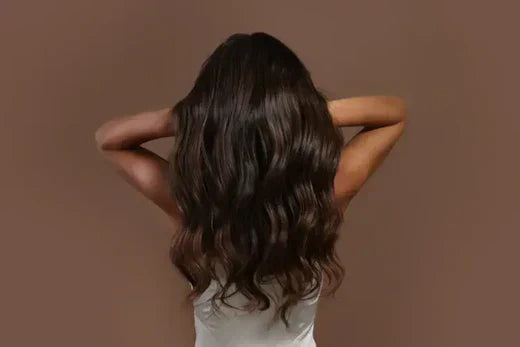
बालों को 5 दिन में लंबा कैसे करें? (Balo ko lam...
बालों को लंबा करने के लिए कई तरीके अपनाए जा सकते हैं जिसमें संतुलित आहार का सेवन करना, बालों की नियमित रूप से सफाई करना, कंडीशनिंग और शैंपू करना, कठोर...

बालों की पतलेपन से परेशान हैं? तो ये घरेलू उपाय...
वर्तमान समय में खराब खानपान और लाइफस्टाइल की वजह से लोगों के बाल पतले हो रहे हैं। पतले बालों की समस्या को दूर करने के लिए कई उपाय अपनाए जा...

मिनोक्सिडिल के फायदे और नुकसान: Minoxidil 1 मही...
झड़ते बालों की समस्या के उपचार में अक्सर आपने मिनोक्सिडिल का नाम सुना होगा। आमतौर पर डॉक्टर के पर्ची पर मिलने वाली यह दवा बालों के झड़ने और गंजापन जैसी...

नये बाल उगाने के उपाय - झड़े बाल उगाने के 10 असर...
NCOA के आंकड़ों के मुताबिक, जिंदगी में ज़्यादातर लोग किसी न किसी मोड़ पर बाल झड़ने की परेशानी से जूझते हैं। मर्दों की बात करें तो हर 100 में से...


